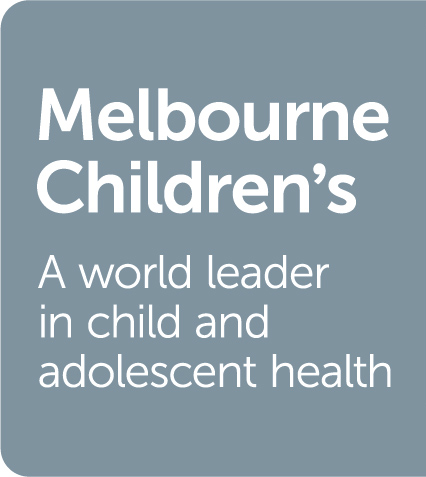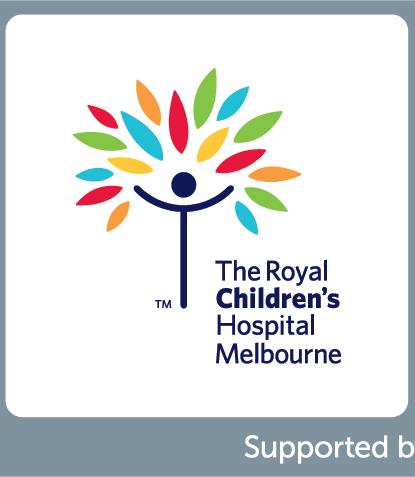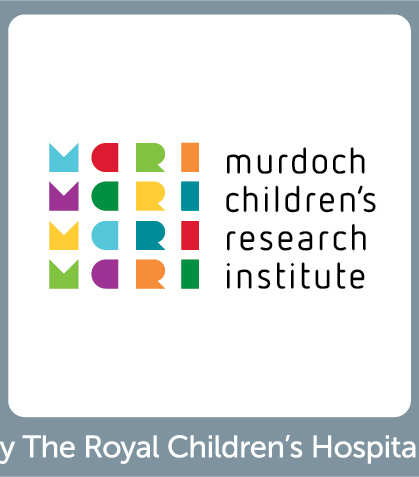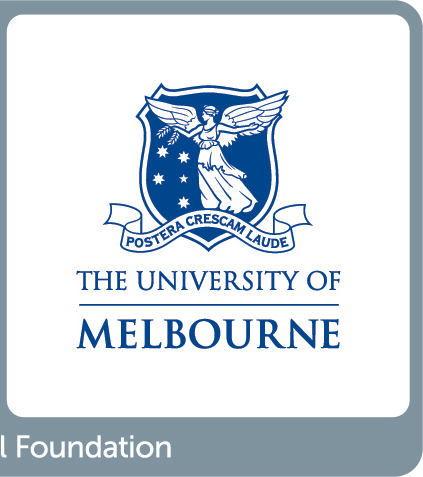Research activities
The ‘Take A Breath’ (TAB) group program was developed as an intervention for parents with persistent symptoms of distress. It was designed to provide parents with the skills to manage the psychological challenges presented by their child’s illness, with the aim of preventing more serious long-term mental health difficulties. A recent randomised controlled trial was conducted with parents at the RCH, including parents of children admitted to the oncology or cardiology departments or the paediatric intensive care unit (Muscara et al., 2020).
Research Team
Frank Muscara, Maria McCarthy, Vicki Anderson, Jan Nicholson
Research Project
Evaluating a Psychological Intervention for Children and Adolescents with Chronic Medical Conditions and Mental Health Difficulties
Research Question
Children and adolescents with chronic medical conditions (CMC) often seek treatment for mental health conditions such as anxiety and depression. Comorbid mental health conditions are associated with poorer medication adherence, longer hospital stays, worse hospital outcomes, increased school absences, and increased risk of self-harm. The RCH Psychology Service commonly receives referrals for children and adolescents with these conditions.
The aim of this project is to evaluate the value for a manualised, modular, evidence-based transdiagnostic intervention to meet this population’s needs.
- Is an evidence-based transdiagnostic intervention effective in reducing symptoms of anxiety and depression in children and adolescents with CMC?
Status of Project Ongoing
Research Team
Dr Louise Crowe, Dr Claire Burton, Dr Alice Morgan
The COVID Wellbeing Study is a mixed methods longitudinal cohort study investigating the immediate and longer-term health and wellbeing impacts of COVID-19 on children and families.
This project will help us answer questions like, how can our health services provide the best care and ongoing support for families affected by COVID-19? And how we can improve communication, support and care for children tested and/or diagnosed with COVID-19 or another pandemic infectious disease in the future?
Research Team
Principal Investigator: Margie Danchin, Vaccine Uptake Group
Study Coordinator: Jess Kaufman, Vaccine Uptake Group
Status of Project
Ongoing (Analysis phase)
Progress milestones
Recruitment completed December 2020
Data collection completed December 2021
Project outputs
Presentations (completed and forthcoming)
- Williams T, Kaufman J, Danchin M, Jos C, Loschiavo K, Loughnan M, Tosif S, Olsson C, Watts J, Brusco T. Parent and child health-related quality of life assessed during testing for COVID-19. Short oral presentation, PHAA Australasian COVID-19 Virtual Conference. 8 - 10 December 2020.
- Williams T, Richards L (presenters). COVID Wellbeing – Exploring experiences of care and the psychosocial impacts of COVID-19 on a paediatric hospital cohort. Oral presentation. MCRI Vaccine Uptake Symposium. 10 November 2021.
- Kaufman J, Bagot KL, Williams T (presenter), Jos C, Danchin M. Exploring the lived experience for families with a COVID-19 positive child. Oral presentation. RCH 2022 Nursing Research and Clinical Innovations Symposium. 12 May 2022.
- Kaufman J (presenter), Bagot KL, Williams T, Jos C, Danchin M. Exploring the lived experience for families with a COVID-19 positive child. Oral presentation (submitted). PHAA Communicable Diseases and Immunisation Conference. June 2022.
Non-peer reviewed publications
Can a single item screening question accurately identify mental health issues in a paediatric population with chronic illness?
Status of Project
Completed. Manuscript in preparation
Paper by Dr Harriet Hiscock et al.
Feasibility of single question mental health surveillance in chronic disease.
Research outcomes
- Carers and children in the Day Medical Unit responded to a single question regarding child mental health and wellbeing
- The use of a single question is feasible in a busy hospital unit
- A single question asked of parents can detect concerns about children’s mental health
Ongoing research will determine how to involve children’s views and understand resource implications of routine screening
Research Team
Mary White (HSRU), Rachel Pelly (HSRU), Jane Le (HSRU), Lucy Dove (DMU), Sarah Connolly (Pastoral Care and Social Work), Alice Morgan (Psychology), Dave Reid (Psychology), Ric Haslam (Mental Health Service), Harriet Hiscock (HSRU)
Transgender, gender diverse, and non-binary (TGDNB) people are those whose gender identity differs from their birth-assigned sex. TGDNB people have poor mental health outcomes, including higher than expected rates of psychopathology, distress, and suicidality (e.g. 48% of Australian TGDNB youth report having attempted suicide). While some relevant psychological interventions have recently been developed overseas, currently there is limited evidence to support their feasibility and efficacy, and they have not yet been tested in an Australian context.
The aim of the study is to co-design a structured group cognitive-behavioural therapy (CBT) program for TGDNB adolescents attending The RCH Gender Service (RCHGS) and conduct a non-randomised trial of the program to improve mental health.
The research will answer the following questions:
- Do TGDNB young people who receive the group CBT intervention show significant improvement in mental health outcomes that are sustained for 6 months?
- Do TGDNB young people who receive the group CBT intervention show significantly reduced minority stress (e.g. less internalised stigma, greater pride in identity) from pre- to post-intervention, sustained at six months?
Status of Project
Ongoing
Progress milestones
Ethics approval obtained April 2022
Co-design workshops due for completion July 2022
Evaluation of co-design process (expected August 2022)
Research Team
Tim Cronin, Alessandra Chinsen, Carmen Pace, Ken Pang, Michelle Tollit, Michelle Telfer, Zeffie Poulakis, Chris Pepping
Why do we need this project?
Children living with disabilities and chronic health conditions experience more mental health difficulties than their peers without health or disability concerns. These difficulties can include depression, anxiety, self-harm and thoughts about suicide.
It is also harder for children with disabilities and chronic health conditions and their families to access the right mental health care at the right time. Often this is because the focus of health care is on the children’s disability or physical health condition, and/or health professionals are not well equipped to meet the specific mental health care needs of children with complex health or disability concerns.
This research project will focus on children experiencing a wide range of disabilities and chronic health conditions, this includes but is not limited to neurodevelopmental conditions; sensory, intellectual and physical disabilities; allergy and asthma; diabetes; and chronic pain.
The experience and impacts of disabilities and chronic health conditions can vary a lot between children with different conditions (or even the same condition). This research project wants to better understand what experiences and risk factors for poor mental health are common among all children, but also where there are important differences. This is essential information to ensure that mental health care is tailored to the specific experiences, needs and circumstances of children and their families.
What does this project aim to do?
The key aims of this research project are to identify:
Factors associated with poor mental health of children with a broad range of disabilities and chronic health conditions
Factors associated with mental health service access and use for children and families
Solutions to improve access to timely and quality mental health support on Campus.
This project will generate evidence about what is needed to strengthen existing and inform the development of new approaches to optimise the mental health of children with disabilities and chronic health conditions and improve their access to timely and appropriate mental health care on our Campus. It will also generate evidence about how these findings can be translated in a way that will influence and support the implementation of organisational and clinical practice change on Campus to optimise the mental health outcomes of children with disabilities and chronic health conditions and their families.
Research Team
Associate Professor Rebecca Giallo
Professor Christine Imms
Associate Professor Adrienne Harvey
Dr Grace McMahon
Dr Bridget O’Connor
Ms Ingrid Sutherland
Dr Georgina Cox
Associate Professor Rachel Peters
Dr Alison Fogarty
Dr Monique Seymour
Ms Claire Lynch
Why do we need this project?
Complex childhood illnesses and long hospitalisations present difficult challenges for patients and families and are often associated with significant mental health implications. There is a small body of research that suggests that some of the distress experienced by families can arise from conflict with healthcare staff about what is best for a child or young person, and misunderstandings or a mismatch in expectations between clinicians, young people and their parents.
The research team's experience is that the impact of such interpersonal conflict in paediatric care is pervasive, but it is very under-researched. Programs and supports for families in dealing with healthcare conflict and its mental health effects are almost entirely lacking. This is a major gap that cannot be filled simply by training staff in conflict resolution. Something specifically for families is needed.
What does this project aim to do?
The overall aim of the project is to design an intervention to empower families to manage these conflicts and seek appropriate help in a timely fashion. This intervention will be co-designed with patients and parents and will be designed to complement staff training programs in conflict management and resolution.
This project will explore patient and parent experiences of conflict with staff associated with their treatment and hospital stays and the impacts of the conflict on them. It will also gather data on how clinical staff interpret what is happening when interactions with families are difficult or conflictual. The understanding gained from this will be used to design a user-friendly, accessible, and meaningful program or intervention to help families navigate conflict and reduce distress. This project puts the lived experience of patients and families front and centre as both the guiding philosophy and the focus of data collection. It will use co-design principles and methods to design both the data collection phase and in the intervention design phase.
Research Team
Associate Professor Maria McCarthy
Professor Lynn Gillam
Dr Prakash Chidambaram
Professor Clare Delany
Associate Professor Jenny Hynson
Dr Katie Moore
Professor Fiona Newall
Dr Molly Williams
Acknowledgement of Country



At Mental Health Central we acknowledge the traditional custodians of the land on which we live, gather and work. We recognise their continuing connection to land, water and community. We pay respect to Elders past, present and emerging.



